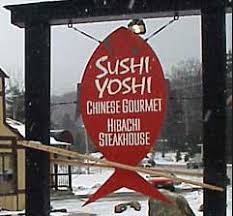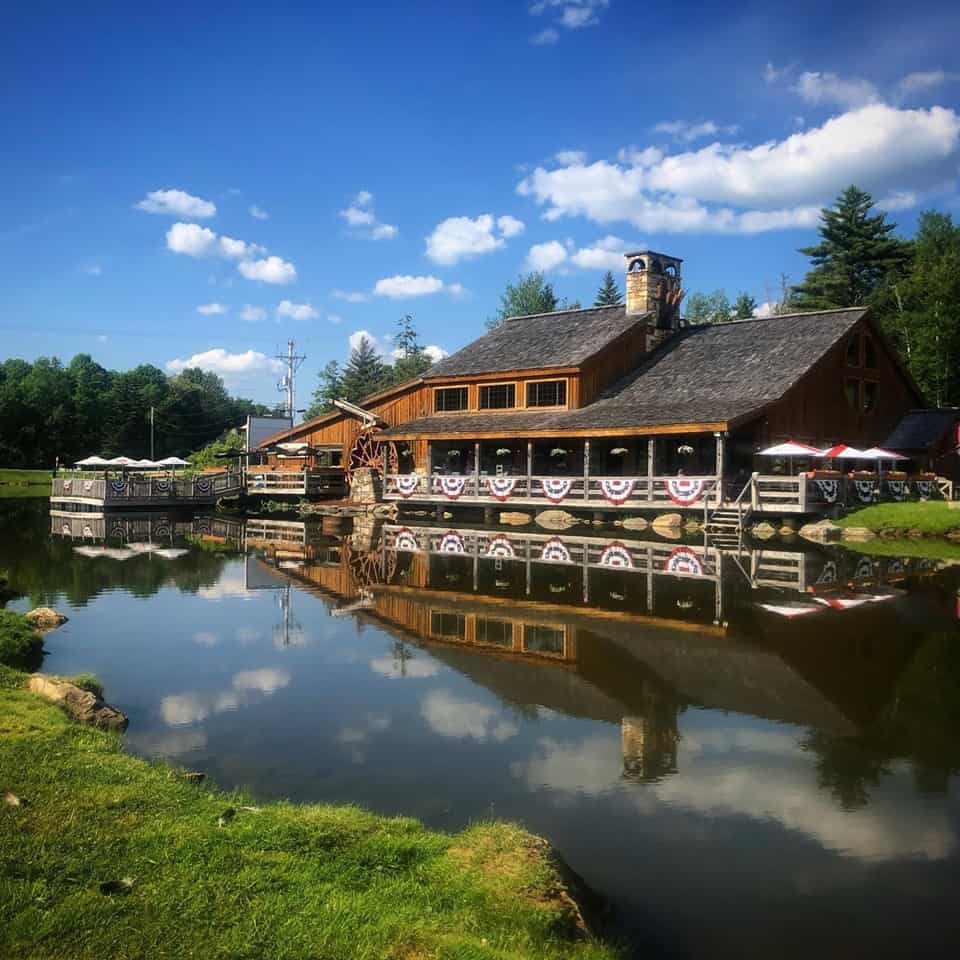Eateries caught between a rock and a hard place anticipate future business
By Curt Peterson
Three iconic Killington eateries applied to the Select Board for expanded outdoor dining approval and won unanimous approval on May 5 – The Foundry, The Lookout Tavern and Sushi Yoshi.
The restaurants, closed since Governor Phil Scott’s March 17 shut-down in response to the coronavirus pandemic, hope he will soon allow reopening, at least to a percentage of their previous legal dining capacity, or even outdoor-dining only.
The Lookout Tavern requested an area similar to one-time outdoor events approved in the past.
The Foundry would like to use its deck and expanded space of 60-by-20 feet, with a split rail fence barrier.
Sushi Yoshi hasn’t previously provided outdoor serving, and wants to serve through their take-out window to a new 30-by-50-foot area.
“We’ve been planning to do this for some time anyway,” Sushi Yoshi owner Nate Freund told the Mountain Times.

“Keep in mind,” Selectman Jim Haff said, “our approval only means the town has no objection. The restaurants still have to get state approval before they have the go-ahead.”
Freund said expanded seating capacity outside won’t increase total seating capacity, which could mean paying for additional sewer usage, more restrooms, and expanding parking.
Mike Coppinger, executive director of the Killington Pico Area Association, said, “There are other considerations, such as accommodations for people with disabilities, etc., as well as social distancing requirements.”
Chris Karr, who owns The Foundry and other Killington businesses, believes the governor will limit reopening capacity to between 20-50%, and is philosophical about the situation.
“The state has been skirting around the issue of reopening restaurants,” Karr told the Mountain Times. “But I think he’s considering the obvious challenges in more densely populated areas than Killington, such as in Burlington. There’s a lot of people there to try to manage safely. We’re just a small segment here.”
Karr said the governor is probably also looking at what neighboring states are doing, and how that’s working out.
“I’m supportive of everything he’s doing,” Karr said. “and, frankly, I think the customers will feel more comfortable eating outside.”
Scott has been reluctant to define when and under what conditions outdoor dining, or any other restaurant operations, may reopen. Other than take-out, eatery businesses have been shut down for close to eight weeks.
As late as Monday, May 11, shutdown easing was allowed for retail businesses using a percentage of capacity limitation of 25% and employing social distancing and employee face masks, but Scott made no mention of restaurants.
Rebecca Kelley, Scott’s director of communications, provided no clarification of his position, or any idea when restaurants might get his consideration.
And federal “stimulus package” loans don’t fit most restaurant business models – the Paycheck Protection Program requires owners to rehire employees to qualify for loan-forgiveness. If they don’t, the loans have to be paid back over a two-year period.
The funds are needed to carry ongoing overhead costs such as rent, mortgage loans, utilities and taxes.
Vermont’s 2,300 local restaurants produce $500 million of the state’s GDP and employ approximately 20,000 people, according to the Vermont Agency of Commerce and Community Development.




